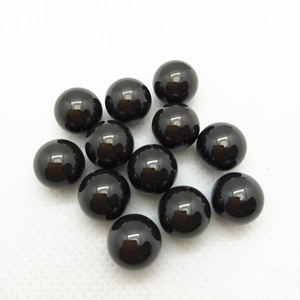High-Quality Silicon Carbide Products | Advanced Ceramic Solutions
PRODUCT PARAMETERS
Description
Overview of Silicon Carbide Ceramic
Silicon carbide (SiC) ceramic is a high-performance material known for its exceptional hardness, wear resistance, and thermal stability. It is widely used in cutting tools, abrasives, automotive components, and high-temperature applications due to its superior mechanical properties and chemical inertness.
Features of Silicon Carbide Ceramic
High Hardness: SiC ceramics are among the hardest known materials, making them ideal for abrasive and cutting applications.
Thermal Stability: They can withstand extreme temperatures without degrading, making them suitable for high-temperature environments.
Wear Resistance: Exceptional resistance to wear and abrasion ensures long-lasting performance.
Chemical Inertness: Resistant to most chemicals, including acids and alkalis, enhancing their durability in harsh conditions.
Low Thermal Expansion: Minimal expansion or contraction with temperature changes, ensuring dimensional stability.
Electrical Conductivity: Some forms of SiC ceramics exhibit semiconducting properties, useful in electronic devices.
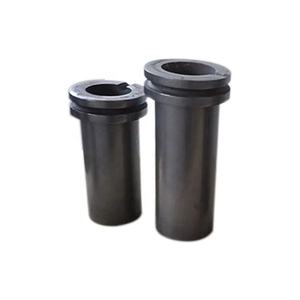
(Silicon Carbide Ceramic Pipe Reaction Sintering Sic Ceramic Tube)
Specifications of Silicon Carbide Ceramic Pipe Reaction Sintering Sic Ceramic Tube
Silicon Carbide Ceramic Pipe Response Sintering Sic Ceramic Tube is made for high-temperature applications. The product makes use of silicon carbide as the base. The response sintering process makes sure high density and architectural stability. This technique integrates silicon and carbon at elevated temperature levels. The result is a ceramic tube with marginal porosity. It stands up to deformation under extreme warmth.
The item manages temperatures as much as 1650 ° C. It works well in oxidizing or destructive settings. Thermal shock resistance is strong. Rapid temperature changes do not create fracturing. This makes it appropriate for industrial heaters or kilns. Chemical security is another advantage. Acids and antacids have little result on the material. It performs reliably in severe conditions.
Mechanical strength is high. The ceramic tube withstands wear and abrasion. Hardness degrees go beyond most steels and standard porcelains. This durability prolongs the item’s life-span. It lowers substitute frequency popular settings. Applications consist of burner nozzles, thermocouple sleeves, and safety sheaths.
Measurements are personalized. Criterion external diameters range from 10mm to 300mm. Lengths can be changed based upon demands. Wall surface density is precise. Tolerances remain within tight limits. This makes certain consistent efficiency across batches. Surface coatings are smooth. Friction and fragment build-up are lessened.
Installation is simple. The tubes incorporate with existing industrial systems. Flanges or clamps secure them in position. Machining options are offered for special shapes. Holes or threads can be included post-production. This adaptability meets varied functional requirements.
Energy effectiveness is an essential benefit. The material conducts warmth efficiently. It lowers energy loss in high-temperature procedures. Reduced power consumption cuts functional costs. Environmental effect is lowered. Long life span lowers waste generation. Production techniques focus on sustainability.
The product suits markets such as metallurgy, chemical processing, and power generation. It handles liquified steels, hostile gases, and thermal biking. Efficiency remains stable gradually. Maintenance needs are very little. Downtime is decreased.
Quality control adheres to stringent requirements. Each set undergoes screening for thickness, hardness, and thermal residential or commercial properties. Problems are rare. Dependability is assured. Personalized specifications are approved. Technical assistance is offered for layout or application obstacles.
The Silicon Carbide Ceramic Pipe Reaction Sintering Sic Porcelain Tube supplies a sensible service for severe atmospheres. It incorporates advanced products with tried and tested manufacturing methods.
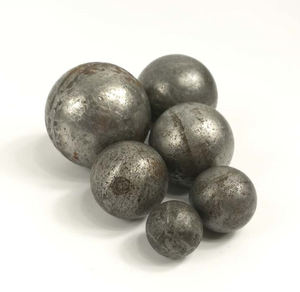
(Silicon Carbide Ceramic Pipe Reaction Sintering Sic Ceramic Tube)
Applications of Silicon Carbide Ceramic Pipe Reaction Sintering Sic Ceramic Tube
Silicon carbide ceramic pipes made through response sintering deal strong performance in hard conditions. These pipes manage high temperatures, stand up to corrosion, and last lengthy. They work well in industries needing reputable materials under stress.
In chemical processing plants, these pipes move hostile chemicals. Acids, antacid, and solvents damages routine pipes. Silicon carbide pipelines stay intact. Their rust resistance cuts downtime and maintenance prices.
Metallurgy makes use of these pipes for molten steel transport. High heat and abrupt temperature level changes damage regular products. Silicon carbide pipes handle thermal shock. They remain stable at temperatures over 1600 ° C. This maintains assembly line running efficiently.
Nuclear power plant gain from these pipelines in burning and gas systems. They endure severe warm and pressure. Their high thermal conductivity boosts warmth exchange effectiveness. This helps energy systems function much better.
Semiconductor making needs clean, exact environments. Silicon carbide pipelines bring high-purity gases and chemicals. They resist contamination and wear. Their smooth surface areas stop fragment buildup, making certain item high quality.
Ecological projects utilize these pipes in waste treatment. Incinerators generate hot, destructive gases. Silicon carbide pipes endure unpleasant ash and acidic fumes. They minimize substitutes and keep systems running much longer.
Mining and mineral processing depend on these pipelines for slurry transportation. Abrasive bits put on down standard pipelines. Silicon carbide’s firmness stands up to disintegration. This extends pipeline life and reduces maintenance.
These pipes additionally operate in aerospace for high-temperature exhaust systems. They handle extreme heat from engines. Their lightweight layout fits stringent sector demands.
Reaction-sintered silicon carbide ceramic pipes fit several industrial needs. Their toughness, heat resistance, and chemical stability make them a functional option. Industries conserve money and enhance efficiency by utilizing these pipes.
Company Introduction
Welcome to It-Chuiko, a premier international supplier of high-quality silicon carbide powder and silicon carbide ceramics. Our products are renowned for their exceptional hardness, thermal stability, and wear resistance, making them ideal for abrasives, cutting tools, refractory materials, and advanced semiconductor applications. We serve a diverse range of industries, including automotive, aerospace, and electronics, with a commitment to quality and innovation. With state-of-the-art production facilities and rigorous quality control, we ensure that our customers receive superior products tailored to their specific needs. Partner with us for reliable, high-performance materials that drive your business forward.
If you have any questions, please feel free to contact us(nanotrun@yahoo.com).
Payment Methods
T/T, Western Union, Paypal, Credit Card etc.
Shipment Methods
By air, by sea, by express, as customers request.
5 FAQs of Silicon Carbide Ceramic Pipe Reaction Sintering Sic Ceramic Tube
Silicon carbide ceramic pipes made through reaction sintering are used in high-temperature and corrosive environments. People often ask these questions about them. What is reaction-sintered silicon carbide ceramic pipe? It is a ceramic tube made by mixing silicon carbide powder with carbon and silicon. The mixture is heated until it forms a solid structure. This method creates a dense material resistant to heat and chemicals.
Why choose reaction-sintered silicon carbide pipes over other ceramics? These pipes handle extreme temperatures better than materials like alumina or zirconia. They resist corrosion from acids and alkalis. Their thermal shock resistance prevents cracking under sudden temperature changes. They also last longer under mechanical stress.
How high a temperature can these pipes withstand? Reaction-sintered silicon carbide pipes operate continuously at temperatures up to 1600°C. They stay stable in oxidizing or reducing atmospheres. Their strength does not drop sharply near their maximum temperature limit.
Where are these pipes commonly used? Industries like metallurgy, chemical processing, and energy rely on them. They work in furnace linings, burner nozzles, and heat exchanger parts. They transport molten metals or corrosive gases. Their wear resistance suits abrasive environments.
What should be checked before installing these pipes? Confirm the pipe dimensions match the system requirements. Inspect for cracks or surface defects. Use compatible sealing materials to prevent leaks. Avoid sudden mechanical impacts during installation. Follow the manufacturer’s guidelines for joining methods.
How to maintain reaction-sintered silicon carbide pipes? Regular inspections for wear or damage are necessary. Clean surfaces to prevent buildup affecting performance. Replace pipes showing significant thinning or cracks. Avoid thermal shocks by heating or cooling systems gradually. Store pipes in dry conditions to prevent moisture absorption.
Reaction-sintered silicon carbide ceramic pipes offer reliability in harsh conditions. Their properties make them suitable for demanding industrial applications. Proper installation and maintenance ensure long service life.
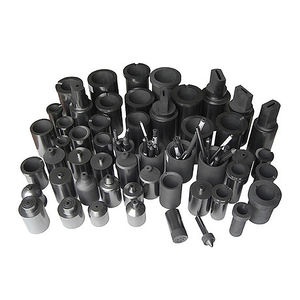
(Silicon Carbide Ceramic Pipe Reaction Sintering Sic Ceramic Tube)
REQUEST A QUOTE
RELATED PRODUCTS
Industrial Machinable Black Silicon Carbide Plate Sintered Wear Resistant Zirconia Ceramic Silicon Nitride Insulation Rod Shape
Customizable 90% Content Silicon Carbide Ceramic High-Temperature-Resistant Silicon Carbide Ceramic Plates High Precision
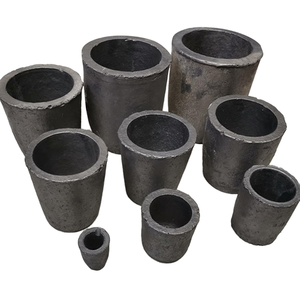
Whole abrasion-resistant siliconized Silicon Carbide SISIC Ceramic Tile Tube Pipe Burner Product
N Sintered Silicon Carbide High Temperature Whole Refractory Silicon Carbide Ceramics SIC Thin Plate Sheet
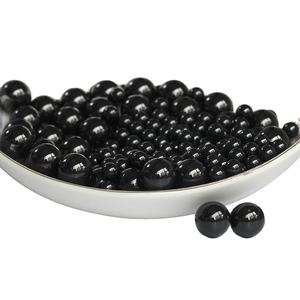
Silicon Carbide SSiC Ceramic Plate/ Tiles For Armor
